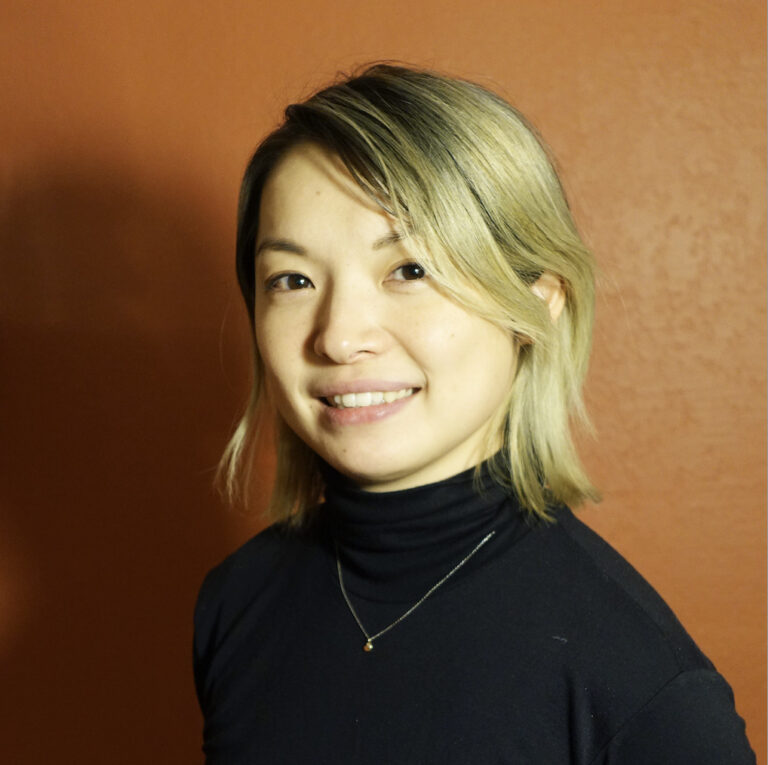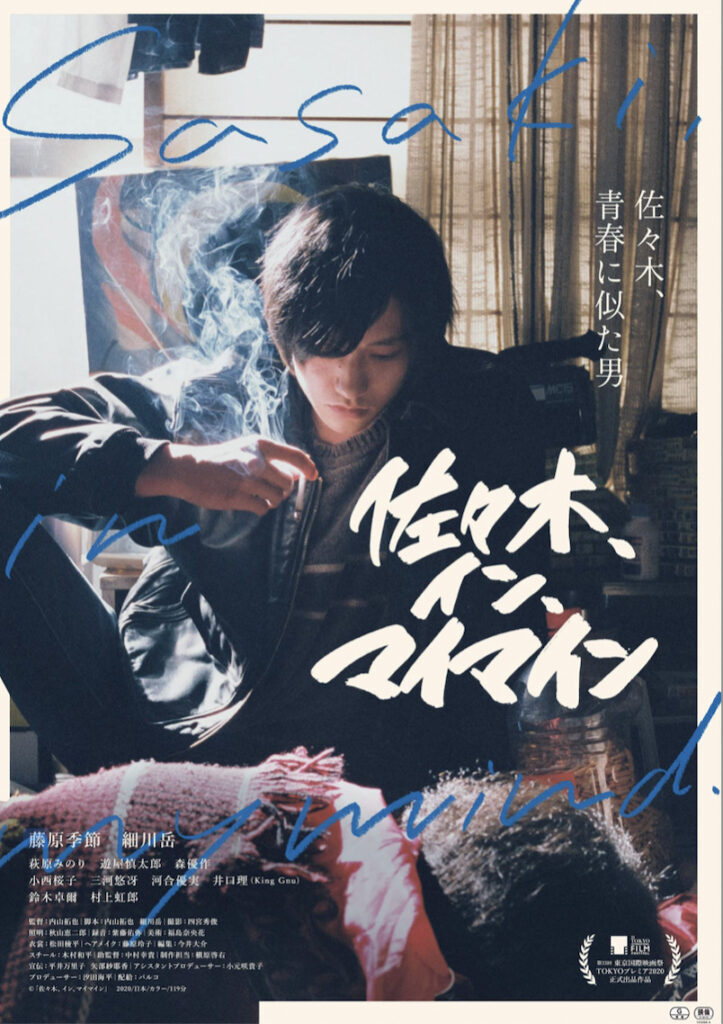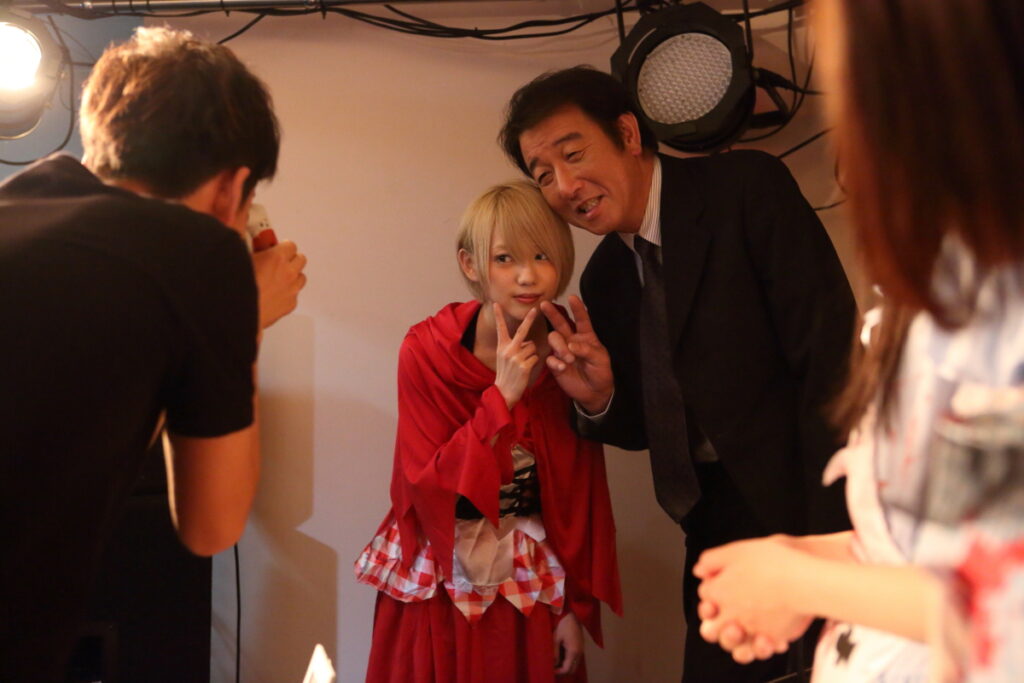
When Chiaki Yanagimoto first discovered films as a kid, she was smitten with the movie making bug. As she explained, “I’m originally from Japan, and I grew up in a very small town where there weren’t many places for entertainment. My mother used to rent movies in VHS regularly from the only video rental store in town, and we would watch them together in the living room. She loved watching movies, so I naturally grew my love for cinema as well.”
Her love and passion for cinema continued to grow through her adolescence. “When I was contemplating what to do after graduating from high school, I wasn’t ready to start working and the only thing I wanted to possibly pursue in study was film. I looked into film schools, and eventually decided to apply to film schools in the United States. I grew up in the 90s when American movies were very popular in Japan, so when it came to film study, I had a one-track mind – go to Hollywood. Also, there weren’t many options for film schools in Japan at that time. There were several institutions, but they were almost like vocational schools, so I would only acquire skills in film production. I was curious about a lot of things in the world and wanted to broaden my horizon. So, I started looking into universities in the United States, more specifically California, instead of Japan.”
Ultimately, that education led her to form SAKKA — an initiative which is set to bring quality Japanese independent films to worldwide audience with as few filters as possible to the filmmakers. As the site explains, “Film fans around the world know the great classics of Japanese cinema (Kurosawa, Ozu, Mizoguchi!). Japanese anime films have their own worldwide recognition. But what about all the other Japanese films? The culture and soil that nurtured the Japanese classics are still there, fostering the gems of today’s generation. While more Japanese films are getting recognized at film festivals around the world, most of them aren’t able to fully spread their wings within the traditional distribution system. We liberate those films and let the world discover them, while giving the power back to where it matters – the filmmakers.” Here’s what she has to say about her emerging company, “SAKKA.”
Exclusive Interview with Chiaki Yanagimoto, a Founder of Film Distribution Company, SAKKA
Q: When Japanese films are released in the U.S., they’re usually picked up because of its blockbuster success in Japan or because the film premiered at prominent film festivals. But the kind of films that SAKKA is handling seems to be smaller but excellent films that haven’t yet seen the light of day. Are you geared towards those types of films?
Yanagimoto: I’ll start by sharing why I created SAKKA to begin with. My background in the film industry is actually producing – I’ve been producing films for over a decade. When I go to various film festivals with my own films, I would encounter Japanese directors, producers, and their films. Even when their films get great reception at those festivals, when I come back to Los Angeles, I won’t have the opportunity to see those films again. I started wondering why it was so impossible to see those films, so I spoke to a lot of people in the industry in the US and in Japan and started seeing some patterns. From those observations, and the feeling that we need to change the status quo, the idea of creating SAKKA was born.
When people in the US hear “Japanese films,” they mostly think of classic Japanese films and directors such as Akira Kurosawa or Yasujiro Ozu, or animation films which has particularly been gaining traction in the US more recently. I felt that people generally don’t have a good sense of what contemporary Japanese films are because there aren’t many opportunities to see them. So, the first part of what we’re doing at SAKKA is to bring more quality films that represent contemporary Japanese films to overseas film fans. There is a whole new generation of talented directors in Japan right now who are doing interesting things. They want their films to be seen overseas, and some want to make films overseas. By creating a pipeline for their films to be seen outside of Japan, our hope is that it will eventually create more chances for these directors to work with people overseas.
Our name SAKKA is a Japanese word that means “auteurs”. If it’s used in novels, it’s a novelist; if used in the film industry, it’s a director. From the get-go, our focus is on sakka, the filmmakers.
Q: You are also connected to film festivals of Japanese films or Asian films such as Udine Far East Film Festival, New York Asian Film festival, Nippon Connection, and New York Japan Cinefest, which are all featured on the SAKKA platform. Is there anything particular you do at those festivals? How do you approach and interact with people involved in film festivals?
Yanagimoto: A lot of these festivals invite directors and producers from Japan, and at some market festivals, the Japanese distributors are there, too. First and foremost, I try to meet them in person and introduce myself. If we want them to trust us with their films, their babies, it is much more meaningful to start by meeting and talking with them in person rather than sending a cold email. Also, I am not based in Japan, and we are not a big distributor yet, so our access to watch Japanese films are still rather limited. There are more chances to watch Japanese films at those festivals, and I get to see the reaction of the audience firsthand, which is a big plus.
Q: How do you choose the movies you want to convey through SAKKA?
Yanagimoto: There are hundreds of films made in Japan each year, so narrowing them down would be a dizzyingly long and daunting process. Fortunately, the festival programmers at Japanese or Asian film festivals around the world already watch a lot of those films every year. We are aware of their selections, and I often talk to these programmers and ask what they recommend regardless of their festivals’ final selection. There are always several films every year that everyone talks about.
The programmers are a great source of information, and they have a good sense of what the audience want.
So, other than meeting with directors and producers from Japan, I go to festivals to talk to the programmers and festival directors there. There are many great festivals around the world that focus on Japanese and Asian films. As SAKKA, we would love to feature those festivals as much as possible, as they are at the core of spreading Japanese films to the worldwide audience. The community of these festivals are significant for me and for SAKKA.
Q: A little while ago, Japanese producer Akihiro Wada, producer/director Taichi, and international studio NOMA unveiled CinemaAirLane which sets its goal to release foreign films in American cinemas without going through a distributor. What do you think about the trend of filmmakers creating a system that allows them to put the films in front of audience and make profit for the filmmakers without going through distributors?
Yanagimoto: A similar concept was actually what inspired me to launch SAKKA. We have a traditional distribution system which works for many films, but one system cannot work for every film that exists out there. Certain kinds of films may need a different approach for them to realize the full potential, and I think that has been true particularly for foreign independent films, in this case Japanese films. The recent surge of global digital distribution such as Netflix didn’t offer a complete solution for them either. Having seen all the patterns for Japanese films, I started thinking seriously about what an alternative approach would look like to distribute Japanese films. One of the “pillars” I set for this alternative approach was to bring the filmmakers and the audience closer. I believe one of the tragic side effects of the traditional distribution system when it’s applied to smaller foreign films is that the filmmakers and local producers often get left behind. They can’t quite see the distribution flow, the report comes late, and there’s no way for them to feel the audience reaction. As a producer, I’ve been on that side.
It can easily happen when there are many “filters” between the filmmakers and the audience. So, on SAKKA, we want to be transparent to the filmmakers and take out the filters between them and the audience as much as possible.
In that sense, there’s a common goal shared by us and companies like CinemaAirLane. I want to be clear that I am not being critical of the traditional distribution system. It works perfectly for many films; but it would be nice if more and more alternative approaches are created to fit better to other films, and I hope SAKKA can be one of them.

@Sasaki in My Mind The film Distributed by SAKKA in U.S
Q: What do you think is lacking in the Japanese film industry today?
Yanagimoto: There’s not a simple answer, but I believe the industry has lots of room for improvement particularly in creating a system that supports filmmakers and allows them to focus on their crafts. It could be a support system such as mentorship and subsidies, or it could be regulatory such as assuring and protecting a safe and sustainable working environment. If the system doesn’t protect creators, they would leave for other industries sooner or later. This would be a huge problem in the future as it will affect the quality of the films that are being made. The hope is there, though. Over the past few years, there have been several movements aiming to change the status quo. One of them is “action4cinema” led by the director Hirokazu Kore-eda, a non-profit organization that aims to establish a Japanese equivalent of the French CNC. My hope is that these movements help create a sustainable industry and continue to nurture the soil for creators to grow. If we don’t want to see infertile land in next five or ten years, it is extremely important to act now and try everything we can to create a system that supports its own people.
Q: What kind of things did you learn when you came to the United States, in the film school or in your career, that are reflected on SAKKA?
Yanagimoto: That’s an interesting question, and it’s quite difficult to narrow it down to just “things”. Frankly, I think SAKKA reflects all of what I’ve learned, studied, and observed ever since I came to the US. But if I need to give an answer, I will say the importance of taking initiative, the entrepreneurship. Of course, I am not saying that kind of mentality or philosophy doesn’t exist in Japan, but I think it’s more prevalent and deep-rooted in the United States. It’s the frontier spirit, forging a new path to the unknown. Sometimes the only way to see what you want to see is to create it yourself. That’s probably something I naturally soaked up in here, and it would have been quite a different experience if I lived in Japan.
Q: In the future, do you have any hopes or desires for what you want to do through SAKKA? Is there anything different from others that you want to do?
Yanagimoto: At its core, SAKKA is a cheerleader for filmmakers, and we want to give voice to them. That’s why we create director-oriented contents for the films we’re distributing such as director’s commentaries and interviews. We really enjoy it, and we want to do more of those, maybe in a slightly different form too. We are also hoping to expand more horizontally in the future. For example, in addition to digital distribution on our platform, we want to explore ways to bring films to the in-person screenings. I believe the experience of watching a movie on a big screen in a theater is very important for both the audience and the filmmakers. We’ve also been talking to various groups about possible collaboration including holding a joint event screening. In May this year, it will be a full year since our launch. Now that we have a solid base to grow from, we’re excited to continue our effort and expand to connect Japanese films and the worldwide audience.

@Noise The Film Distributed by SAKKA in U.S
Check out more of Nobuhiro’s articles.
SAKKA’s official site, SAKKA

